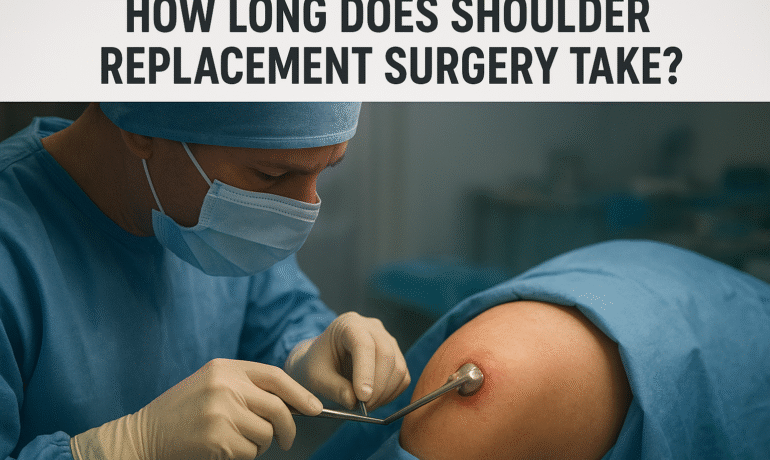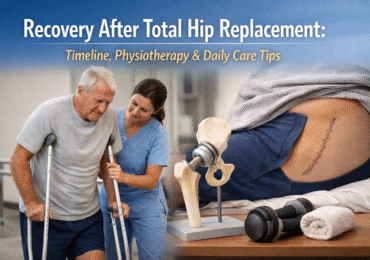Shoulder replacement surgery is a life-changing procedure for those suffering from severe shoulder arthritis, fractures, or rotator cuff damage. Many patients often ask, “How long does shoulder replacement surgery take?” Understanding the full process—from preparation to recovery—can help ease anxiety and ensure better outcomes.
1. What Is Shoulder Replacement Surgery?
Shoulder joint replacement, also known as shoulder arthroplasty, involves replacing the damaged parts of the shoulder joint with artificial implants. This surgery helps restore mobility, reduce pain, and improve shoulder function. The entire process requires precision, advanced orthopedic techniques, and proper post-operative care.
2. Pre-Surgery Preparation (30–60 Minutes)
Before the surgery begins, patients undergo pre-operative assessments, including:
Medical evaluation and blood tests
Anesthesia discussion and consent
Marking of the surgical site
This phase ensures the patient’s safety and readiness for the operation.
3. Duration of Shoulder Replacement Surgery (1.5–3 Hours)
The actual surgical procedure usually takes around 90 minutes to 3 hours, depending on factors such as:
The type of replacement (total, partial, or reverse)
The patient’s overall health condition
Complexity of shoulder damage
During this time, the surgeon carefully removes the damaged bone and cartilage, then positions the artificial components accurately for smooth shoulder movement.
4. Post-Surgery Recovery Room (1–2 Hours)
After the surgery, patients are taken to a recovery area where vital signs are closely monitored. Pain management and early movement of the fingers and wrist are encouraged. Once stable, patients are shifted to their hospital room for observation.
5. Hospital Stay and Rehabilitation
Most patients stay in the hospital for 2–3 days after surgery. Physical therapy begins soon to regain shoulder strength and motion. Over the next few weeks, guided exercises help improve flexibility and prevent stiffness.
6. At-Home Recovery Timeline
First 2 weeks: Use of sling support; limited shoulder movement
3–6 weeks: Gradual increase in range of motion
6–12 weeks: Strengthening exercises under supervision
3–6 months: Most patients resume normal activities with minimal pain
7. Factors That Can Affect Surgery Time
Every patient is unique, and the surgery duration may vary depending on:
Surgeon’s expertise
Presence of scar tissue or bone deformity
Type of implant used
Any complications during the procedure
Conclusion
The shoulder replacement surgery timeline—from preparation to full recovery—varies by individual. Proper guidance and post-surgery care lead to smoother, faster healing.
Consult Dr. Vinay Ortho Care for expert evaluation, advanced shoulder replacement, and personalized recovery support.



